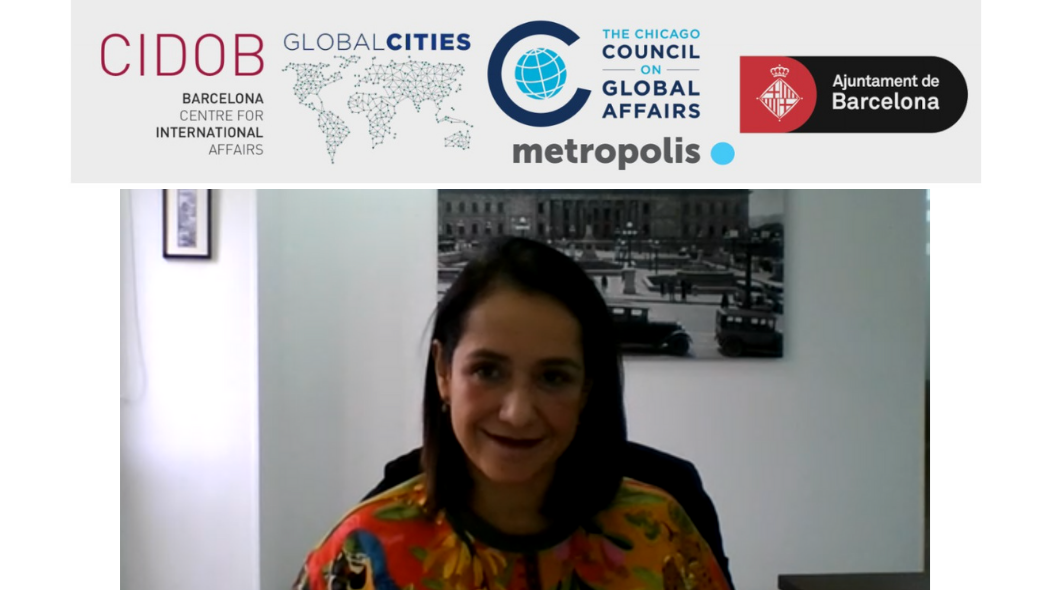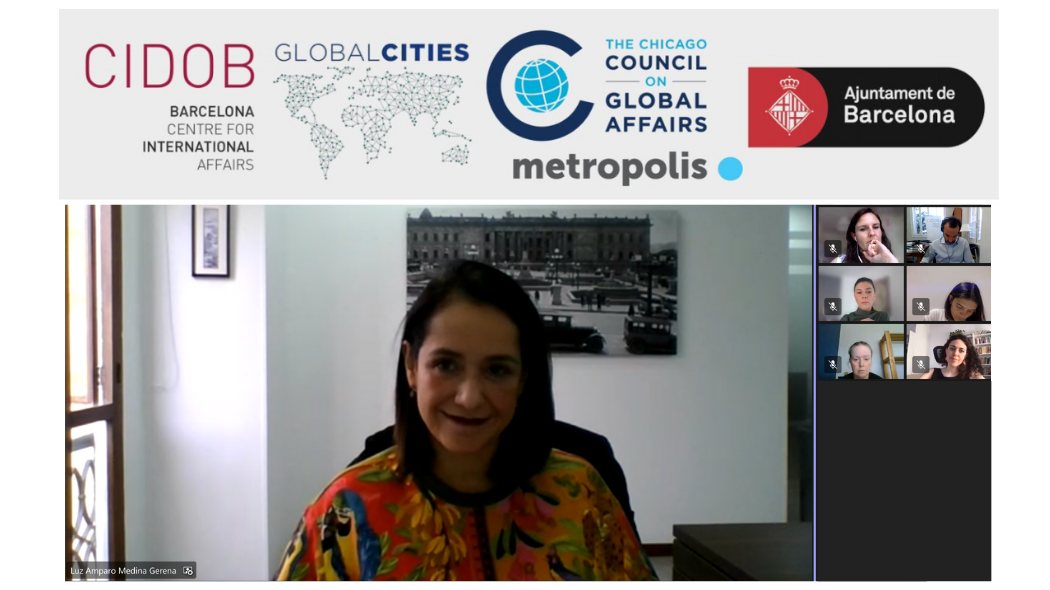Director of International Relations, Luz Amparo Medina, participated in the international meeting ‘Understanding the value proposition of city networks and measuring impact’ convened by the Barcelona Centre for International Affairs (CIDOB), in collaboration with the global network of cities ®metropolis, the Chicago Council for Global Affairs and the Barcelona City Council.
The main objective of this virtual conference was to discuss just how city networks impact the transformation of its habitants and their outcomes. Any and all conclusions will serve to broaden our understanding of the global landscape of city networks and will be the topic for an essay to be published in the months to come by CIDOB.
In attendance were experts, professionals and representatives of cities and local governments across the world. Director Luz Amparo Medina spoke on behalf of the Bogota Mayor’s Office for International Relations of the importance of city networks to guide and accelerate the urgent transformations that are required on a global level, “We are living a decisive moment for multilateralism. The COVID-19 crisis has given us the opportunity to potentialize global co-operation and elevate cities as relevant stakeholders of development”.
🔴"We are at a decisive moment for multilateralism. The #Covid_19 crisis has given us the opportunity to potentialize global cooperation and elevate cities as relevant stakeholders of development."@LuzAmparoMedina at the online meeting by @CidobBarcelona y @metropolis_orgpic.twitter.com/vPJ1l6ViVo
— Relaciones Internacionales Bogotá (@BogotaInter_nal) July 14, 2021
According to Director Medina, the pragmatic, in-depth and problem-solving approach that characterizes city networks has made a great difference in terms of how we deal with modern problems by applying modern solutions. “City networks and local governments must broaden their reach and strengthen ties among various NGOs, national/local governments, civil society, the private sector and the academic world, to materialize collaborative actions in new impactful and more complementary ways”.
At the conference, the participants agreed unanimously that a greater effort is necessary – not only to broaden our understanding if the topics at hand – but to place these urban challenges at the heart of the international discussion. The Sustainable Development Goals (SDG) come to mind, for which, in addition to the implementation of strategies specific to each city, are key to our work towards a common goal.
Another point that came up was the fact that in recent years city networks have played a key role in urban governance. They constitute a finely interwoven fabric of more than 200 entities that seek to reach out to local governments. As cities are the main focus of the current crisis generated by the pandemic, they occupy a central role in the response to it. Throughout the health crisis, mayors and various officials from different cities have pooled their resources to find the likeliest solutions to mitigate the damages of the pandemic. In this, the pandemic has offered a favorable context to make city networks more relevant.
Participating in these spaces for the free exchange of ideas allows Bogotá to measure the performance of the efforts invested in these transnational networks, as well as to materialize its ambitions of internationalization.








